Catching Trestles speckled trout isn't nearly as easy as catching speckled trout in the marsh, and this guide reveals the painfully obvious reasons as to why.
So, if you stick around, I'll show you how to overcome the challenge of fishing the Trestles, as well as the other bridges of Lake Pontchartrain.
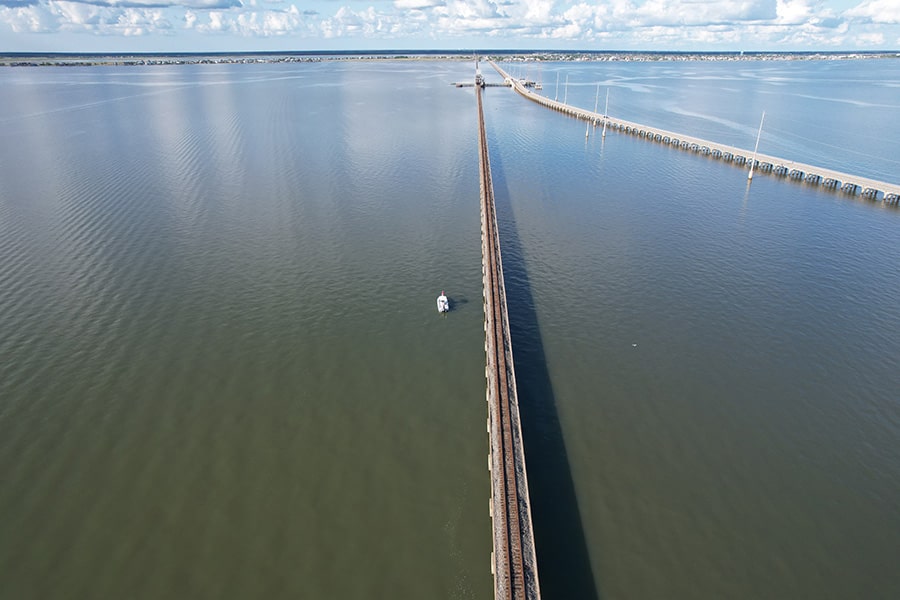
For now, let's explore why this train bridge is so tough to begin with:
Why are Trestles speckled trout in Lake Pontchartrain so tough to fish?
People say it's the snags you lose your lures on. Others believe that "Lake P" speckled trout are a "different breed", being finicky and harder to catch.
I don't agree with any of this.
Snags exist across Louisiana's inshore waters. We handle all of them the same: you get unsnagged or you're forced to pop the line and retie.
So, I'm pretty sure that the specks feeding at the Trestles and other Lake Pontchartrain bridges (such as the Twin Spans and Hwy 11 bridge) are like any other speckled trout, especially since we know the majority of them leave the lake to go somewhere else.
I believe the real difficulty anglers face is the difference between how you cast to Trestles speckled trout and how you cast in the marsh.
It really has everything to do with whether or not your cast is obstructed. In Lake Pontchartrain, there's a big bridge in the way, but in the marsh it is wide open.
I know this may be a little confusing, so let me break down the concept so that it is easy to understand. Once you do, you'll appreciate what I am trying to share here:
What is this obstructed vs non-obstructed casting?
See, our inshore waters are fairly uniform across Louisiana's coast.
It's all flat and there are no overhead obstructions impeding an angler's cast, such as trees or low-hanging wires.
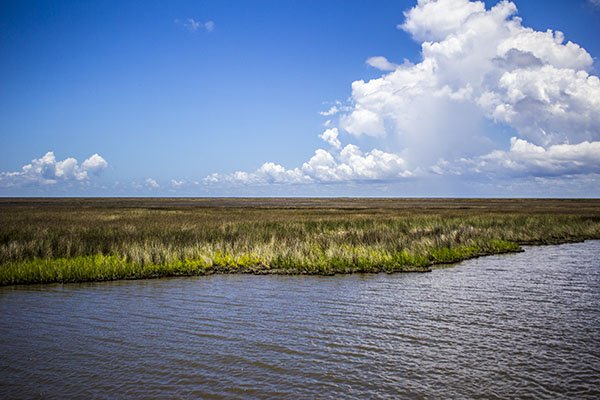
Just look at the picture above. What is in the way of a swinging fishing rod?
The answer: nothing.
Because of this, we become comfortable casting in one way: an overhead cast.
An overhead cast is easy to execute. Best of all, it enables inshore anglers to put a lot of power into it.
But this technique is no good when fishing for Trestles speckled trout. That's because the bridge, especially since it is low-lying, is in the way of the lure reaching the water (more on this in a moment).
Because of this, many anglers mistakenly believe they are good at fishing until they go to the spring and fall runs in Lake Pontchartrain and are proven otherwise.
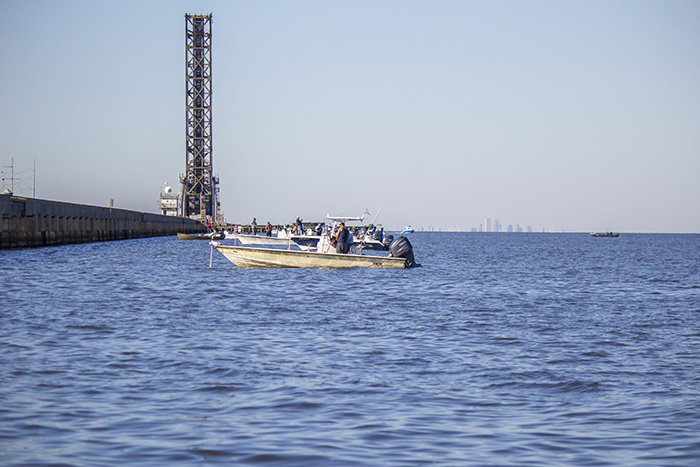
They think that their overhead casting technique is enough when it's really not. Sure, it did great in the marsh, but not at the bridges.
Why is this the case? Let's look at that next:
Unobstructed Casting When Fishing in the Marsh
It's generally accepted that trout feed when the water is moving, so wherever you fish in the marsh you must account for this moving water.
This is especially the case if the water is deeper.
And that's because this moving water acts upon your sinking lure, usually moving it in a horizontal manner.
The current does this to your lure in the same way wind moves a rising balloon.
To compensate for the current, you have to cast upstream of the trout. This way the lure can reach them where they are feeding, which is usually the bottom of the water column.
Now, if they were feeding at the top of the water column, then you'd get bit as soon as your lure hit the water.
On those days you don't need much skill, because you pulled off what I recommend inside Inshore Fishing 101: finding biting fish to begin with.
Quick Note About Inshore Fishing 101:
I am pretty religious on finding biting fish in the first place.
While I do believe making adjustments in how you cast and which tackle you use (like what you and I are covering in this guide) will get you great results, I feel strongly that — if you find a great fishing spot to begin with — you will find success not just on your next fishing trip for Trestles speckled trout, but all of your future fishing trips to any location speckled trout swim.
That is the bread and butter of Inshore Fishing 101, and why I strongly recommend you enroll by joining my membership, LAFB Elite.
“
Taking Me To The Next Level
I'm a recent transplant from north Louisiana, and most of inshore fishing is brand new to me. I bought a boat last year and made a vow to learn as much as I can about the marsh, and feel like I've done just that!
I've bass fished a good bit so I have some basic knowledge and have been able to catch fish every time I've gone, just not numbers. I feel that this is taking me to the next level.
Time to catch a limit!
Inshore Fishing 101, as well as all of my courses, is only available by joining this membership. You also get access to the LAFB Elite Community.
To see all of the benefits of joining, please visit this information page.
Anyway, getting back on track: In the marsh you have lots of room to make this big, overhead cast ahead of speckled trout.
This gives the lure plenty of horizontal distance to fall the vertical distance down to the fish.
This view from above is a good example:
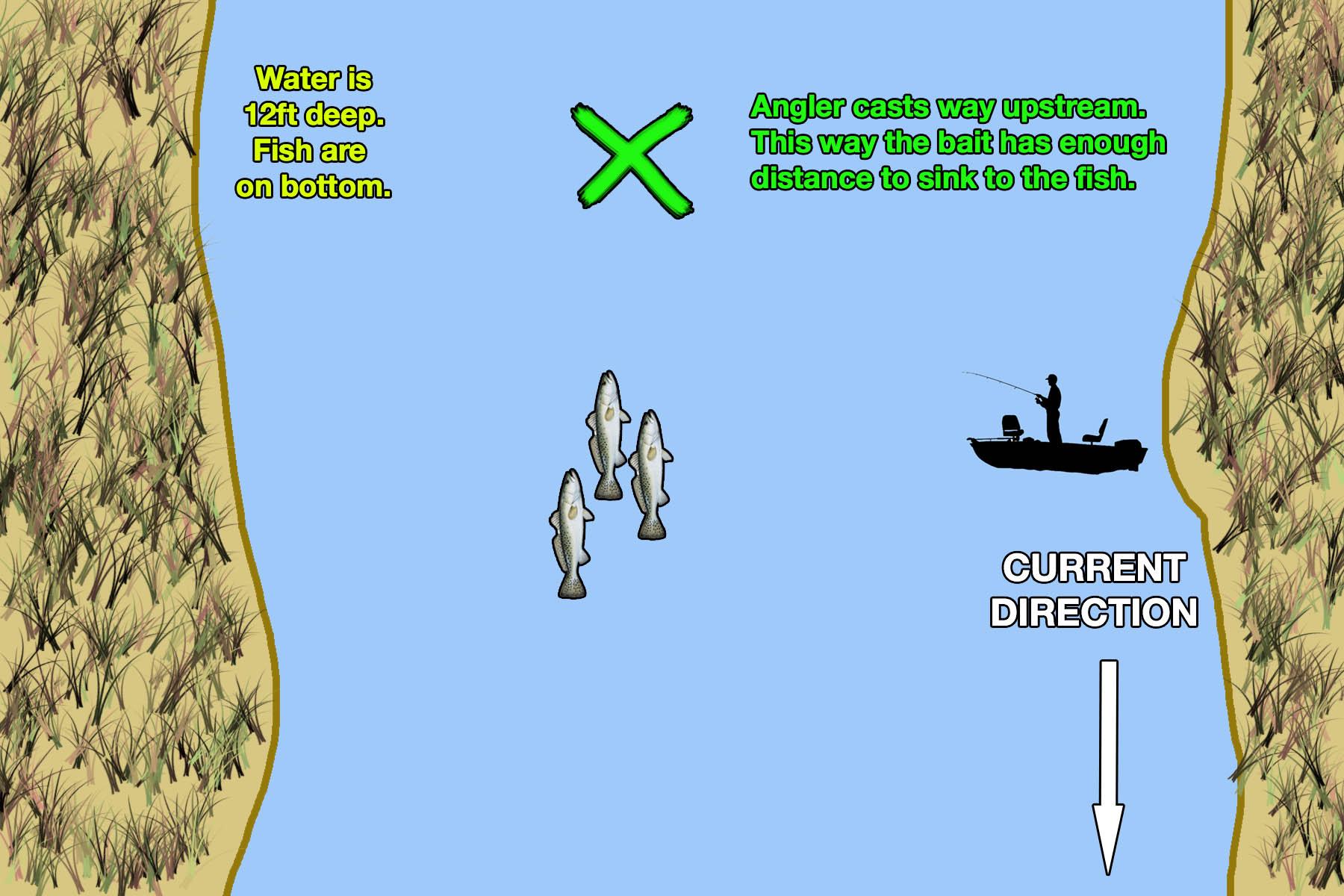
NOTE: The scenarios here are for trout feeding at the bottom of deep water, usually 10ft or more. This is not for trout feeding at the water's surface.
The same example, but this time viewing it sideways.
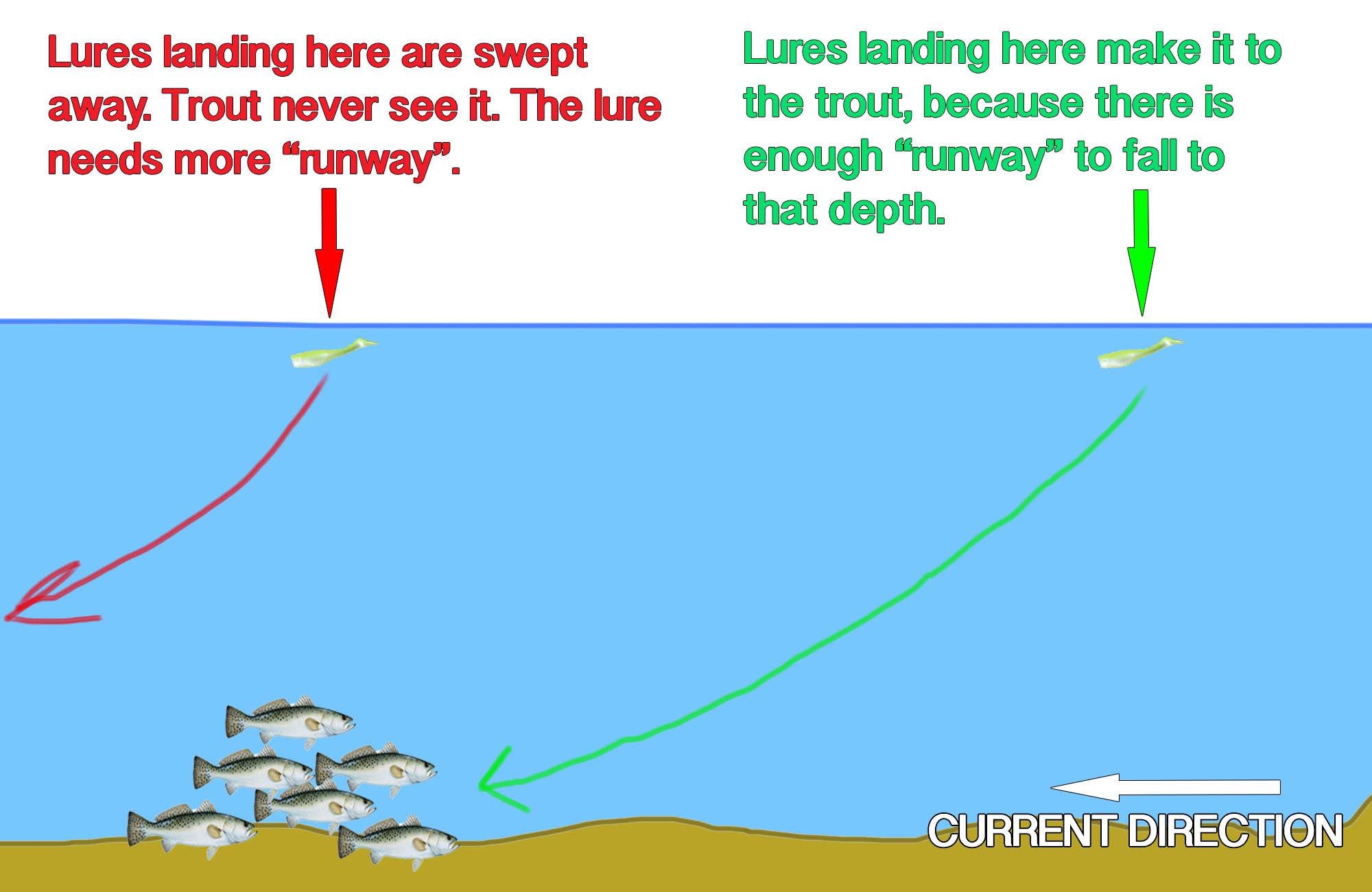
Click to Enlarge
So now you see how your overhead cast works in the marsh. You're not obstructed, or there is nothing in the way of your lure reaching the water's surface.
However, things are much different when fishing for Trestles speckled trout, or any of the other bridges of Lake Pontchartrain.
Let's take a look at that next:
Obstructed Casting When Fishing Trestles Speckled Trout
You do not have the luxury of a long "runway" when fishing the Trestles!
The "runway" for the lure to reach the fish is much shorter, because the bridge impedes a long-distance, overhead cast.
With a shorter runway the lure flies over and past speckled trout.
The trout will never see the lure. If they can't see it, they cannot possibly bite it!
This is the reason why most people who fish these bridges don't catch as much as they otherwise could!
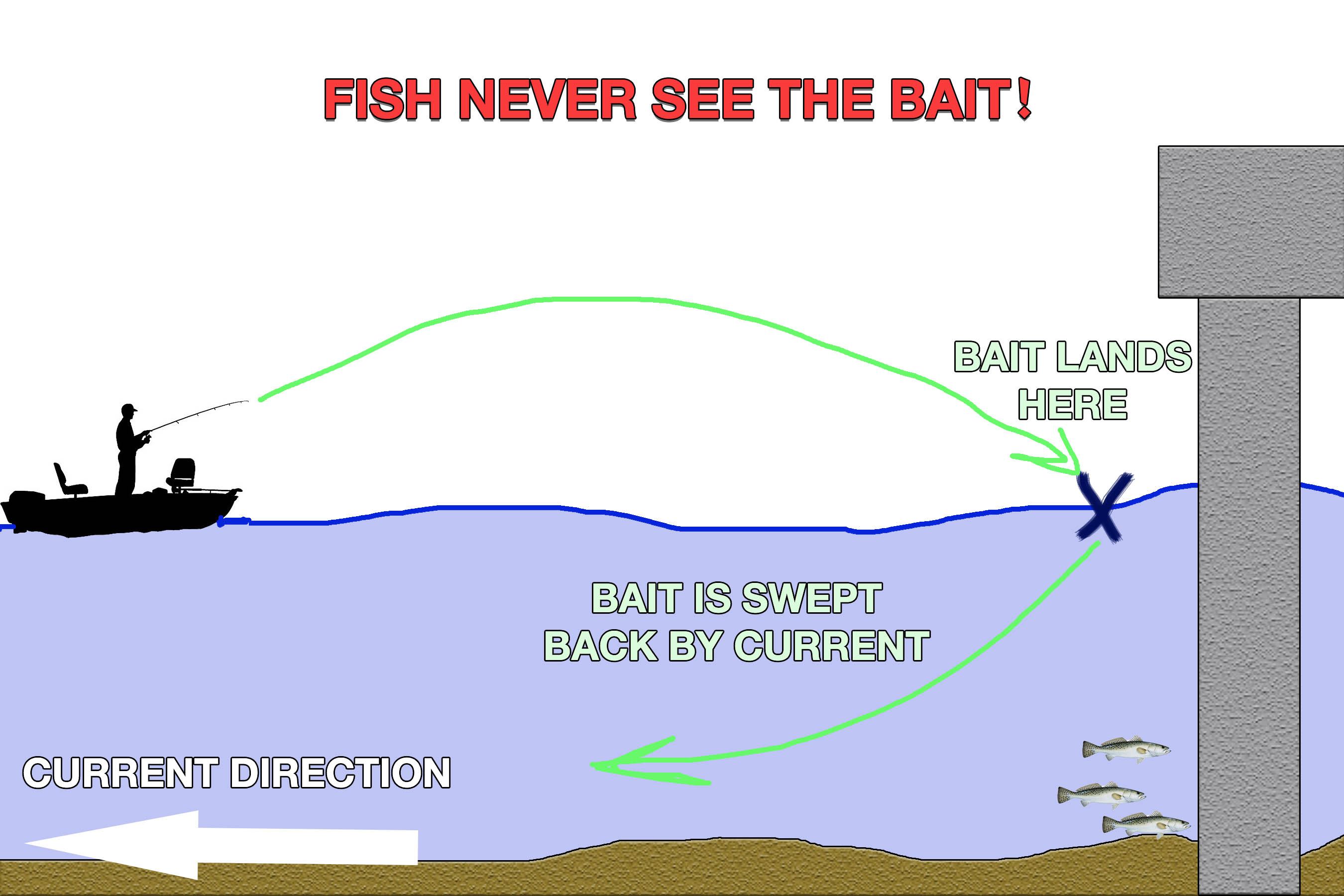
In the marsh, your lure has plenty of horizontal distance to descend the vertical distance to biting fish.
When fishing for Trestles speckled trout (or most bridges), your lure has far less horizontal distance to cover the same vertical distance.
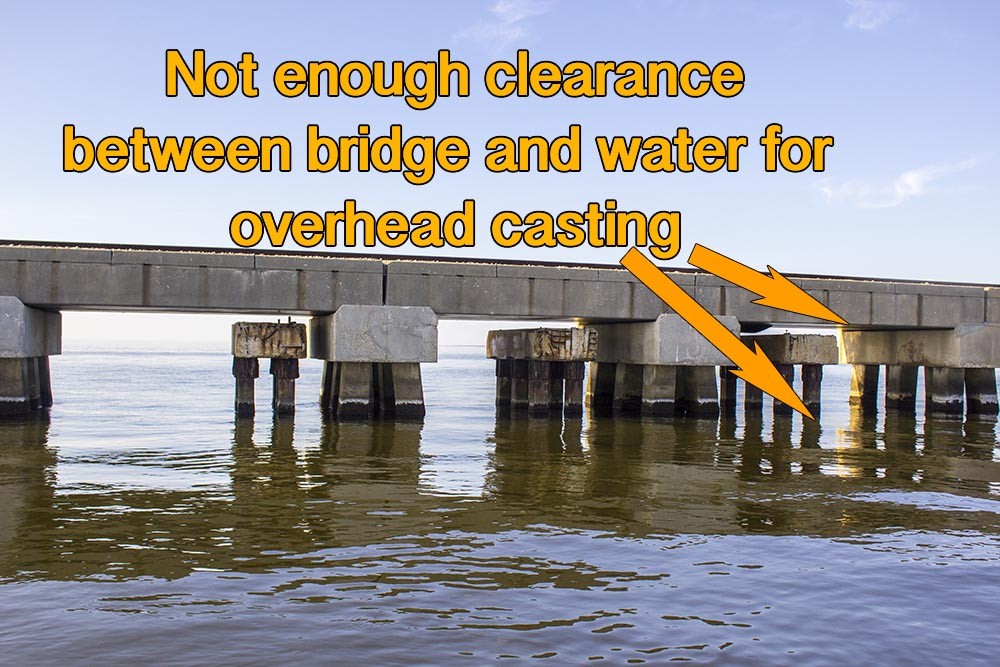
So, if you used the same casting technique for Trestles speckled trout as you did in the marsh, you'd be missing biting fish!
This is the case even if you were on top of a big school of speckled trout!
How can you adapt to this short runway to catch Trestles speckled trout?
The first thing you need to do is ensure your lure is heavy enough.
The first mistake anglers make is using a lure that isn't properly weighted. Usually they go too light, such as tying on an 1/8 ounce or 1/4 ounce sinking weight.
Your best "all around" weight will be 3/8 ounce, sometimes heavier or lighter, depending on water depth and speed.
I know that in this other guide I teach how to use overweighting, but when casting at Trestles speckled trout, this is not such a great idea.
The second thing you want to do is knock slack in your line. This can be as easy as leaving the bail of your spinning reel open once the lure hits the water.
Let it take out some slack and fall straight down so fish can see it, then close it.
This way it can fall straight down instead of swinging back toward you.
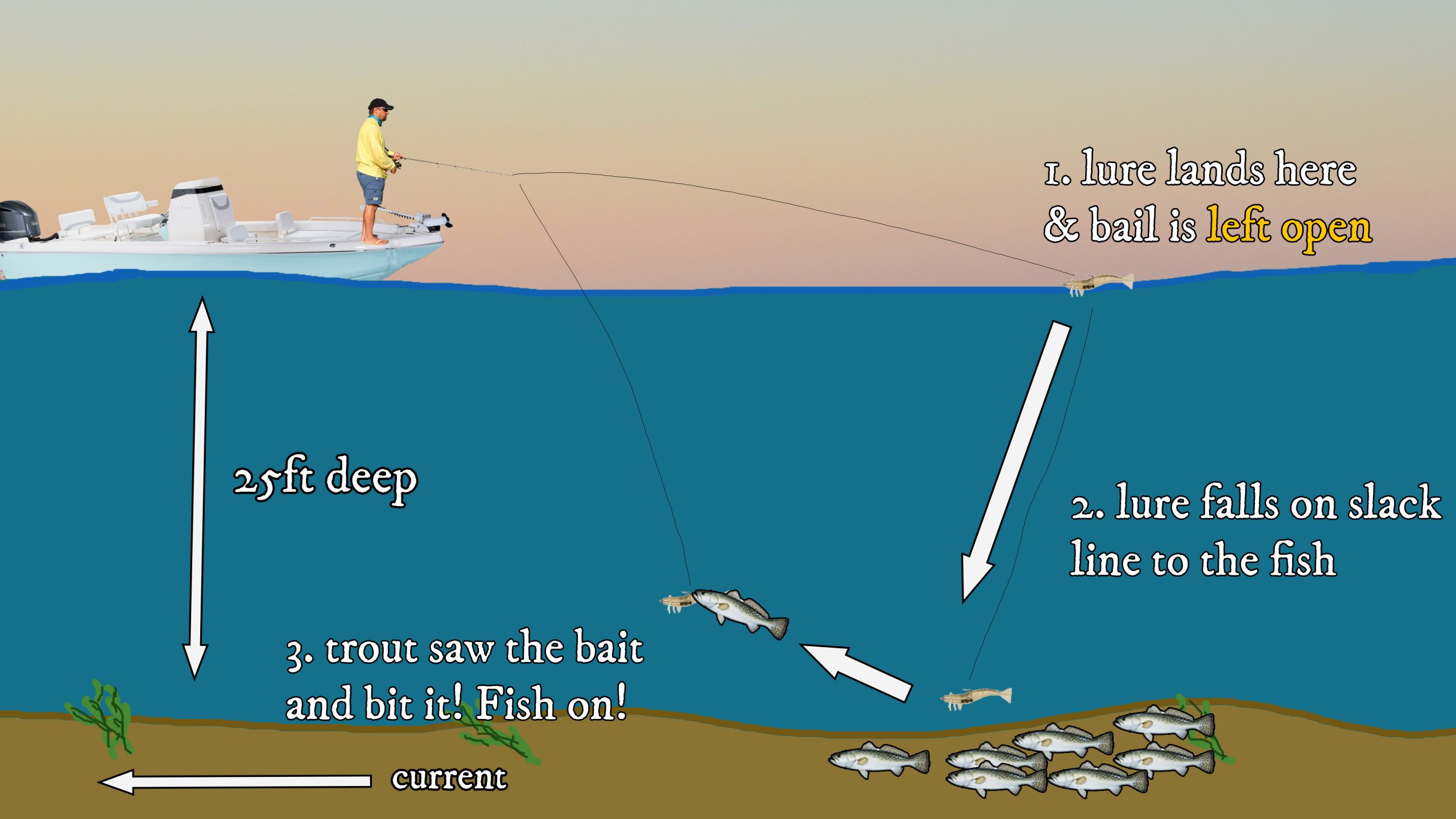
If you didn't do that, then the lure would swing back toward you on a tight line. It would never reach the bottom.
The below graphic illustrates this:
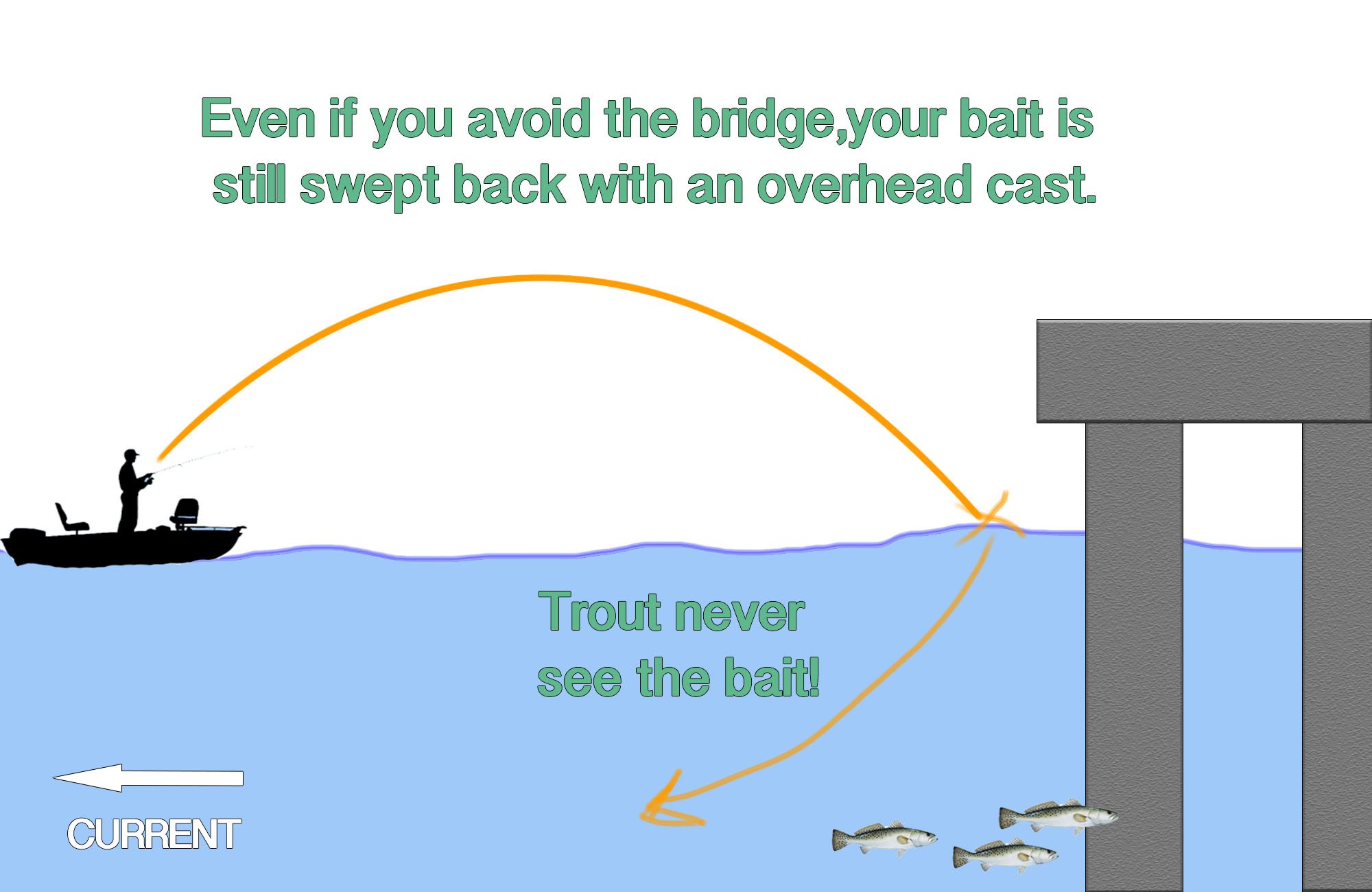
Even if it did reach the bottom, then it would most likely do so outside of where speckled trout are holding.
They'd never see it and you'd be left scratching your head wondering why you're not catching fish!
But there's more to successfully catching Trestles speckled trout...
The tips above will help you catch more speckled trout at the bridges of Lake Pontchartain...with spinning tackle.
Which is okay because that is what most inshore anglers use. Most, but not all.
So let me introduce a plot twist here: the best way to catch Trestles speckled trout is to use casting tackle.
If you're not sure, then consider that long-time Lake Pontchartrain experts such as Chas Champagne and Kenny Kreeger both use casting tackle to fish these locations for speckled trout, especially when jigging.
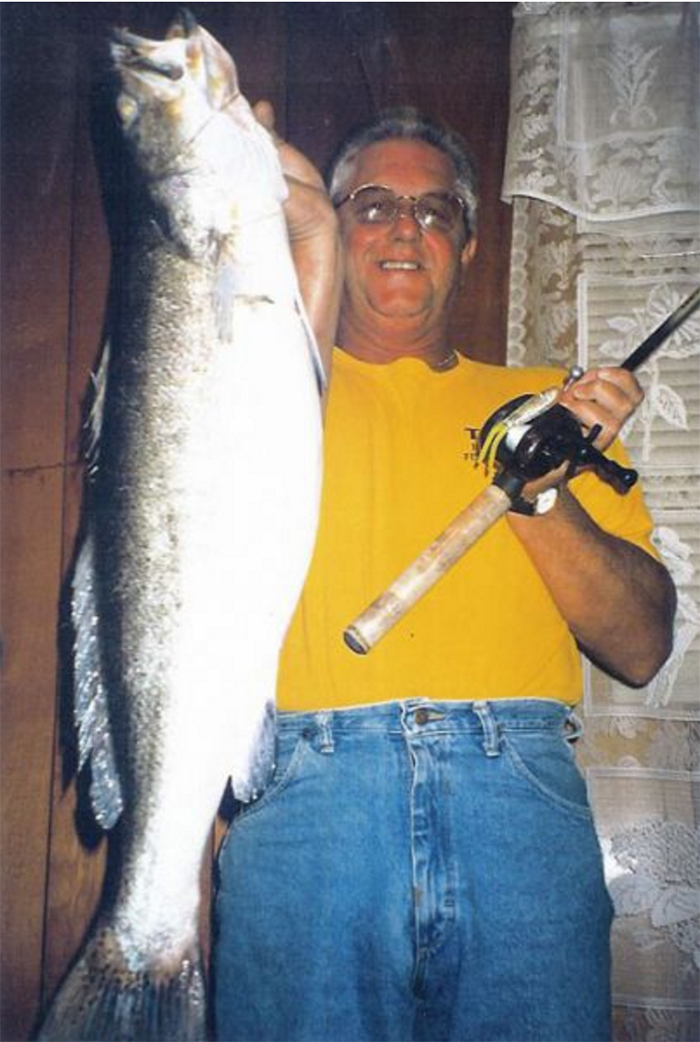
Look closely at the rod and reel used by this trout fishing master.
But I caught lots of specks just fine without a baitcaster!
Yeah, I hear that a lot, usually from people that never have pictures or fishing reports to prove it.
But maybe you did catch a bunch of Trestles speckled trout on spinning tackle. I know that I have.
And when I did, it was almost always because the bite was that good.
Trestles speckled trout were everywhere in the water column and there were just that many of them in the water feeding.
That was probably a day you and your buddy caught an easy limit of speckled trout.
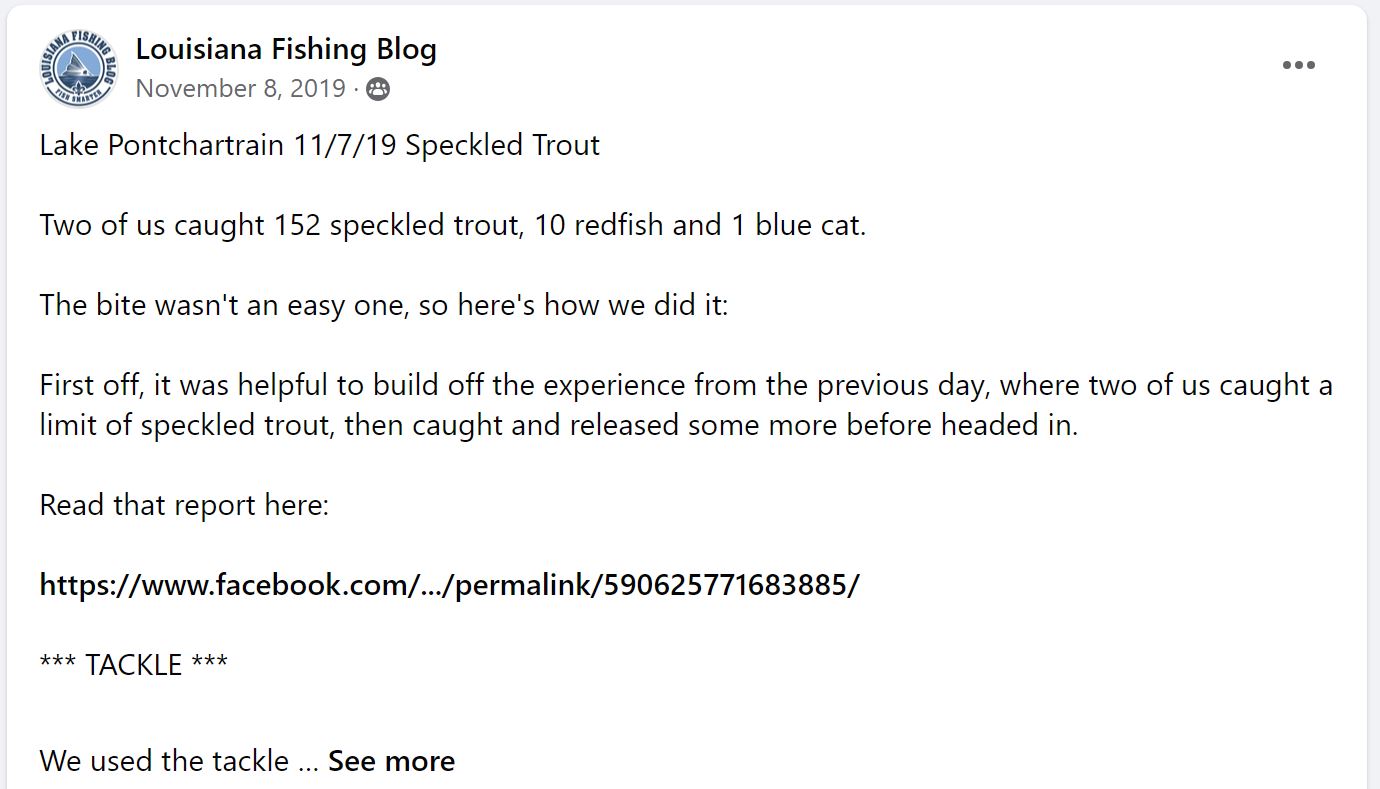
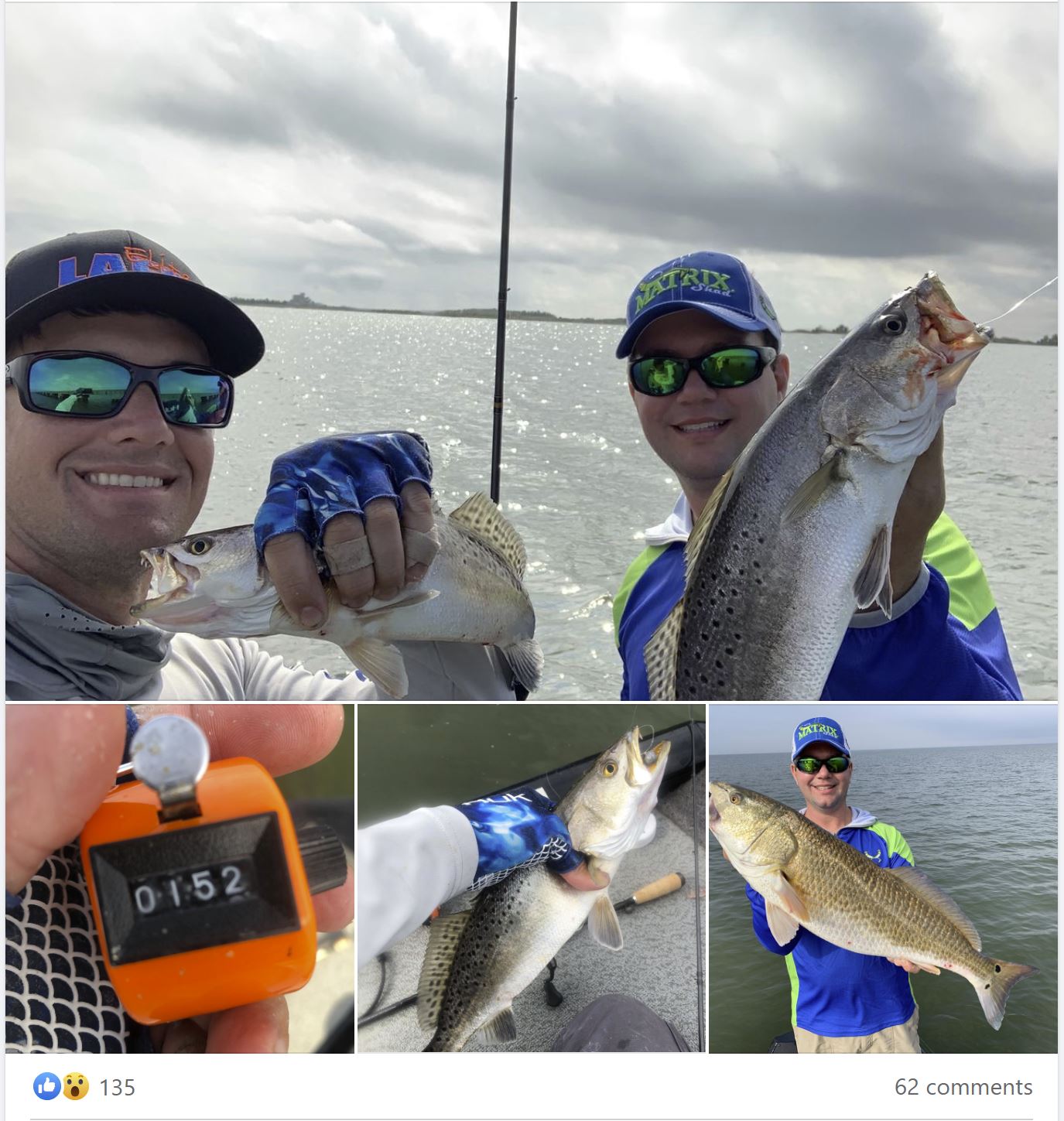
But that same day my buddy and I caught 150+ speckled trout. You can find my fishing reports on the LAFB Elite Community or watch my YouTube videos if you're not sure.
It's on those days that casting tackle catches more.
Then, on the days when everyone else struggles, a talented angler proficient with casting tackle will still catch a bunch of fish anyway.
If you disagree, then please tell me why in the comments below and I'll respond when I get time.
If casting tackle is so good to catch Trestles speckled trout, then what should I use?
That is a great question that you will find answered in this complete (and free) guide to jigging speckled trout.
In it I detail the rod, reel, line and fishing lures you want to use. Not surprisingly, it is the same tackle I use on my fishing trips.
I recommend you visit that guide next, because if you can learn how to use that kind of tackle in the way I teach, then you will be able to catch more fish at more locations than just Trestles speckled trout.

You 1,000% should! It’s an incredible tool to unlock great fishing you otherwise couldn’t enjoy with spinning tackle. Thank you for visiting my website!
Not really good using a bait caster but im working on it
That’s awesome! I’m happy you took the time to comment. Thank you so much!
Such good advice
Thanks for the kind words, Joey. I’m just going to keep trucking along like I have and we’ll see where it goes from there.
Semper Fi.
Devin, for a couple of years now, I thought that you should have your own local TV persona like Frank Davis had until he passed, but it is apparent that you aren’t just an entertaining fisherman, you are the ultimate in fishing knowledge. You should have your own national television show dedicated to educating today’s fisherman. Personally, I believe that you have already started that journey. I hope one of the big networks realizes what a valuable asset you would be to them. See you on our Birthday, November 10th at Luke’s Restaurant.